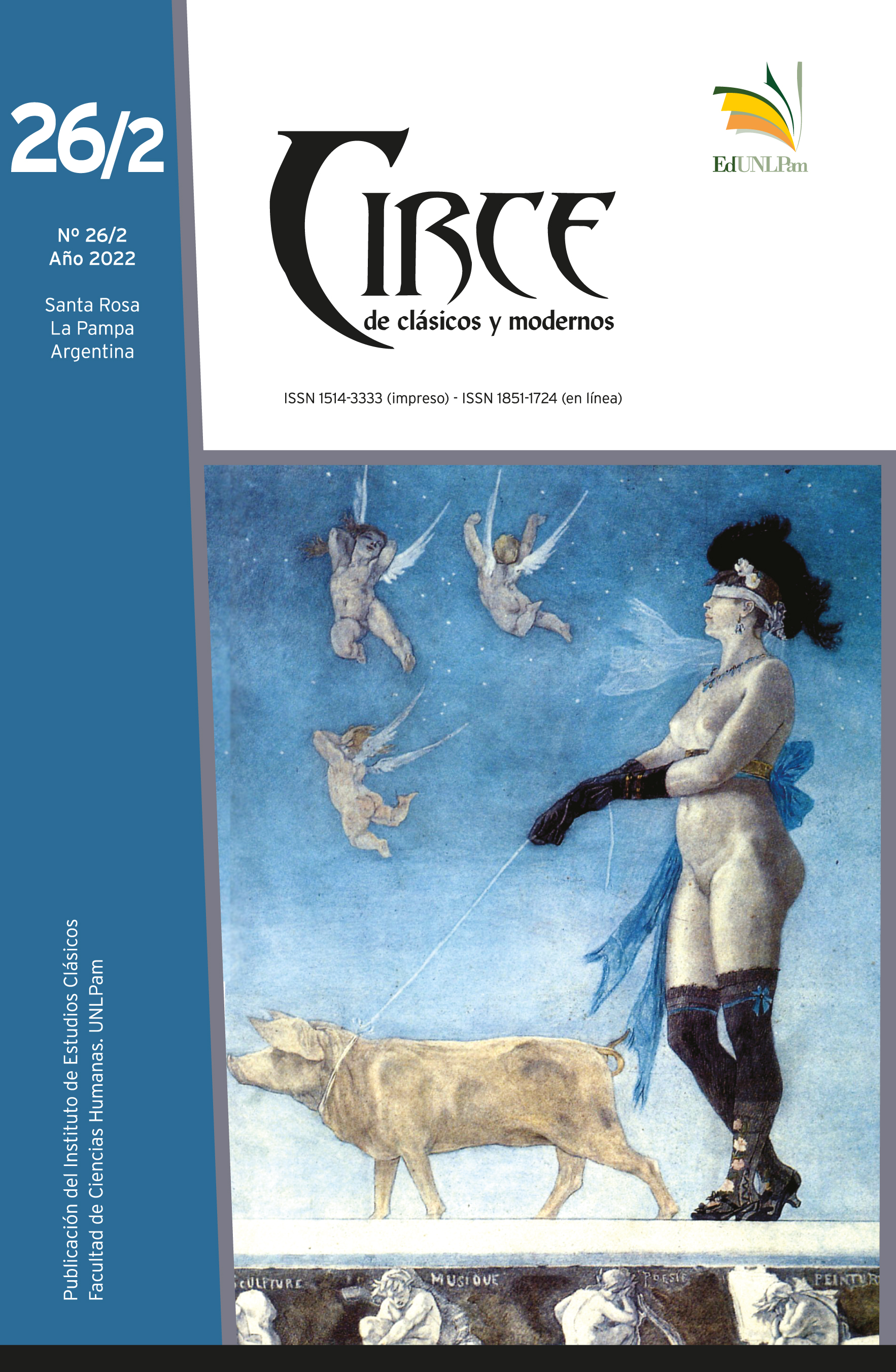“It is necessary to dry (δέον αὐχμεῖν) the emotions” (Rep. 606d). Challenges from/to Plato
Keywords:
emotion, Republic, theater, rhetoricAbstract
This article investigates a few passages from Plato’s Republic in order to uncover certain assumptions and consequences of the philosopher’s argument about the status of emotions, which culminates in the incisive and radical statement in book X, “It is necessary to dry the emotions” (Rep.606d). According to Plato, emotions lead men to act irrationally and in a cowardly manner, especially citizens who become accustomed to poetry, particularly drama, which arouses the passions. Rather than analyzing the philosopher’s criticism of the value of theater and the expression of pain (such as lamentation and crying), I shall examine a contemporary case: the funeral of actor Jean-Paul Belmondo which was held by the French government amidst the SARSCoV-2 pandemic crisis. Through this approach I shall reassess the role of emotion in the education of citizens and the political strengthening of a city or a group.
Downloads
Downloads
Published
Issue
Section
License
Los autores que tengan publicaciones con esta revista, aceptan los términos siguientes referidos a los derechos de autor/a:
1. Los autores/as conservarán sus derechos de autor y garantizarán a la revista el derecho de primera publicación de su obra, el cuál estará simultáneamente sujeto a la Licencia de reconocimiento de Licencia Creative Commons Atribución-NoComercial-CompartirIgual 4.0 Internacional (http://creativecommons.org/licenses/by-nc-sa/4.0/). que permite a terceros compartir la obra siempre que se indique su autor y su primera publicación esta revista. El autor es el titular del copyright.
2. Los autores/as podrán adoptar otros acuerdos de licencia no exclusiva de distribución de la versión de la obra publicada (postprint) siempre que se indique la publicación inicial en esta revista. La cesión de derechos no exclusivos implica también la autorización por parte de los autores para que el trabajo sea depositado en el repositorio institucional y difundido a través de las bases de datos que el editor considere adecuadas para su indización, con miras a incrementar la visibilidad de la publicación y de sus autores.
3. Se permite y recomienda a los autores/as difundir su obra a través de Internet antes y durante el proceso de envío, lo cual puede producir intercambios interesantes y aumentar las citas de la obra publicada.







.jpg)









2.png)



